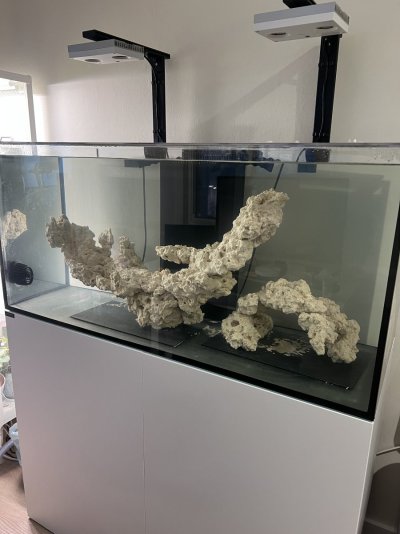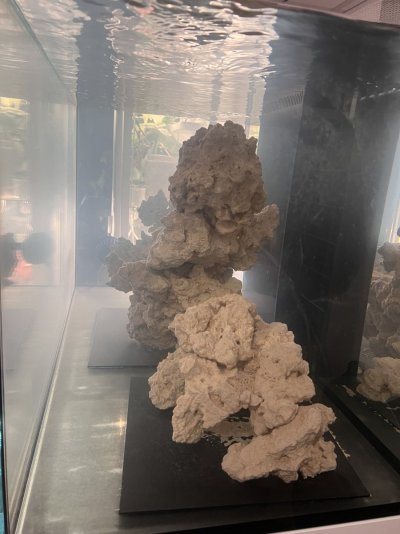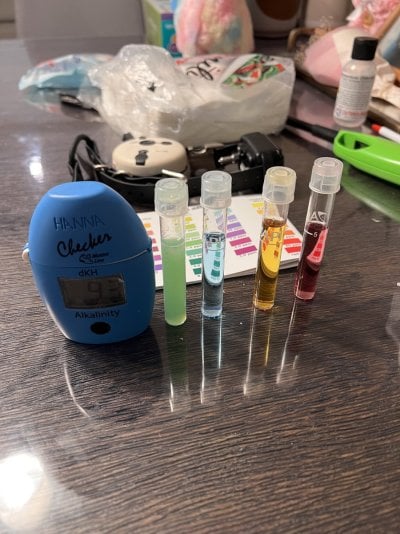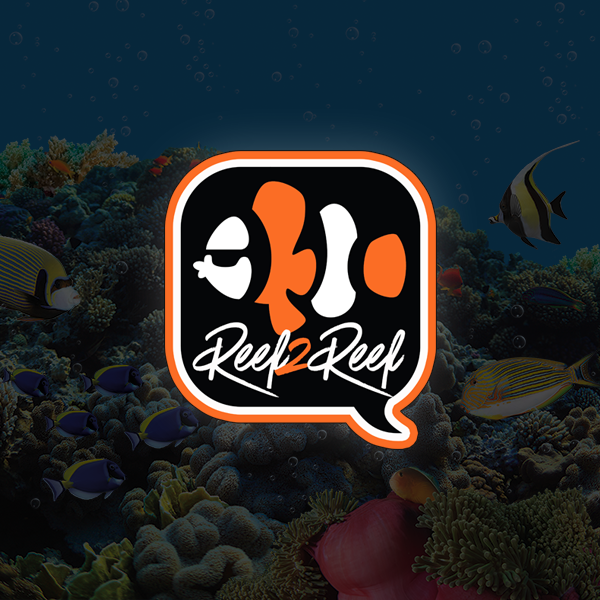Display Tank: 80g, Sump 30g
Water: 5-stage RODI + Instant Ocean Reef Crystals, Salinity 1.025
Rock: 70lbs dry
Bottom: Bare
60 days ago I ordered my first 4oz bottle of Fritz Turbo 900 from a LFS (for delivery). However, I let it sit in 60 degree temp for a week before adding it to the display. Roller Mat is off, return pump is on. It was added together with the approparite dosage of Dr. Tim's Ammonia Chloride. 10 days later, my amonia readings were still 2.0ppm.
I thought perhaps I let the bottle sit too long unrefrigerated so I ordered a new bottle from AlgaeBarn. As soon as the bottle arrived I added it to the display. 10 days later, ammonia still read 2.0ppm. Nitrite 0ppm, Nitrate 0ppm, Alkilinity 9.3, PH 8.0.
Fritz customer service sent me a replacement bottle (delivered to me by the same LFS as the first order). I added it to the display tank within an hour of delivery. 4 days later, I'm still reading ammonia at 2.0ppm.
Are all the bottles duds? Or, is there something else possibly going on with my water that could be killing off the bacteria? Is there a way to test for this?
The tank was brand new setup.
Water: 5-stage RODI + Instant Ocean Reef Crystals, Salinity 1.025
Rock: 70lbs dry
Bottom: Bare
60 days ago I ordered my first 4oz bottle of Fritz Turbo 900 from a LFS (for delivery). However, I let it sit in 60 degree temp for a week before adding it to the display. Roller Mat is off, return pump is on. It was added together with the approparite dosage of Dr. Tim's Ammonia Chloride. 10 days later, my amonia readings were still 2.0ppm.
I thought perhaps I let the bottle sit too long unrefrigerated so I ordered a new bottle from AlgaeBarn. As soon as the bottle arrived I added it to the display. 10 days later, ammonia still read 2.0ppm. Nitrite 0ppm, Nitrate 0ppm, Alkilinity 9.3, PH 8.0.
Fritz customer service sent me a replacement bottle (delivered to me by the same LFS as the first order). I added it to the display tank within an hour of delivery. 4 days later, I'm still reading ammonia at 2.0ppm.
Are all the bottles duds? Or, is there something else possibly going on with my water that could be killing off the bacteria? Is there a way to test for this?
The tank was brand new setup.
Last edited:





















